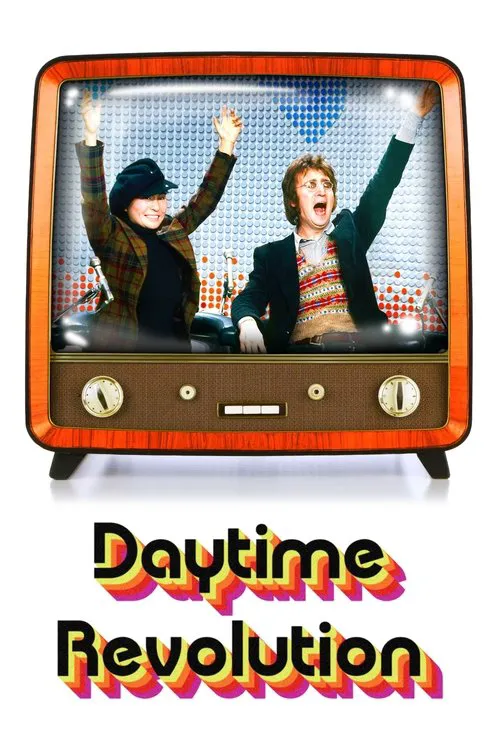Daytime Revolution

Plot
In 1972, the landscape of television was vastly different from what we know today. The most popular daytime show on television was the Mike Douglas Show, a program that brought engaging conversations with notable guests to a national audience of 40 million viewers each week. Hosted by charismatic and affable Mike Douglas, the show was renowned for tackling serious issues with sensitivity and care. However, when the show's producers decided to broadcast from Philadelphia, their production team found themselves faced with a challenge that would change the course of television history. John Lennon and Yoko Ono, the iconic music duo, were scheduled to appear on the show. The couple had made headlines for years with their activism and their unbreakable bond, and fans eagerly anticipated their arrival at the studio. But Lennon had a vision to use this platform not only to share their music but to speak out against the ongoing Vietnam War and the establishment, as well as to promote their vision of peace and love. As the show's producers worked to accommodate Lennon and Ono's requests, the dynamics of the program began to shift. The usual formula, which involved Douglas engaging in conversation with other celebrities and public figures, was set aside to give the Lennons center stage. They had a week booked on the Mike Douglas Show, and they were determined to make each episode unforgettable. Douglas, a seasoned professional who had learned to be adaptable, went along with the plan despite some initial concerns about Lennon's outspoken views. Ono, with her boundless energy and determination, quickly took charge, using her creativity to shape the show's content and bring out the best in Lennon. She also played a key role in arranging the segments, working closely with Douglas and the production team to ensure that their message resonated with the audience. During their five-episode stint, Lennon and Ono used the platform to tackle an array of topics, from the ongoing war in Vietnam to their views on art and politics. The Lennons' unique approach to the show was both captivating and thought-provoking, inspiring discussion and debate among viewers. Douglas, who had initially been hesitant about how to navigate the challenges of hosting a show with such outspoken guests, quickly found his footing, and the tension between him and the Lennons was gradually replaced by a deepening sense of respect. One of the standout episodes featured a poignant segment in which Lennon and Ono spoke candidly about their life and experiences, from their early days in Liverpool to their time as a couple. They also talked at length about their views on love and relationships, sharing their perspective on what it means to truly connect with another person. Another memorable segment saw Lennon and Ono joined by other notable figures, including Dick Gregory, a comedian and activist who had also been a vocal critic of the Vietnam War. Together, they participated in a heated discussion about the state of the world, their words and ideas sparking fiery debates among the audience. As the week progressed, the energy of the show began to build, with each episode more captivating than the last. Viewers tuned in in droves, captivated by the chemistry between Lennon and Ono and the sense of purpose that drove their message. Douglas, initially hesitant about how to navigate the challenges of hosting the show, found himself fully immersed in the experience, his own sense of passion and commitment to his craft inspiring by Lennon's unwavering dedication to his cause. As the final episode drew to a close, it became clear that the impact of Lennon and Ono's time on the Mike Douglas Show would be lasting. The Lennons used the platform to spread their message of love and peace, inspiring a generation of young people to think about the world in a new and different way. The legacy of their time on the show would continue to be felt long after they left the studio, as a testament to the transformative power of television and the incredible potential that it held to inspire and transform. The five episodes they taped in Philadelphia in 1972 have been preserved as a testament to a pivotal moment in television history, when the world saw John Lennon and Yoko Ono on the Mike Douglas Show bring their message of peace, love and human connection to a wider audience of 40 million viewers each week. These remarkable moments continue to inspire artists and activists today, reminding us that with courage, creativity and determination, we can use any platform to make a difference.
Reviews
Recommendations




